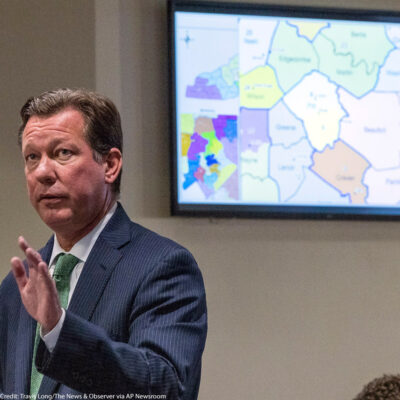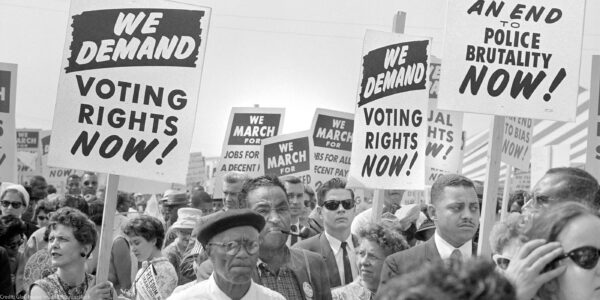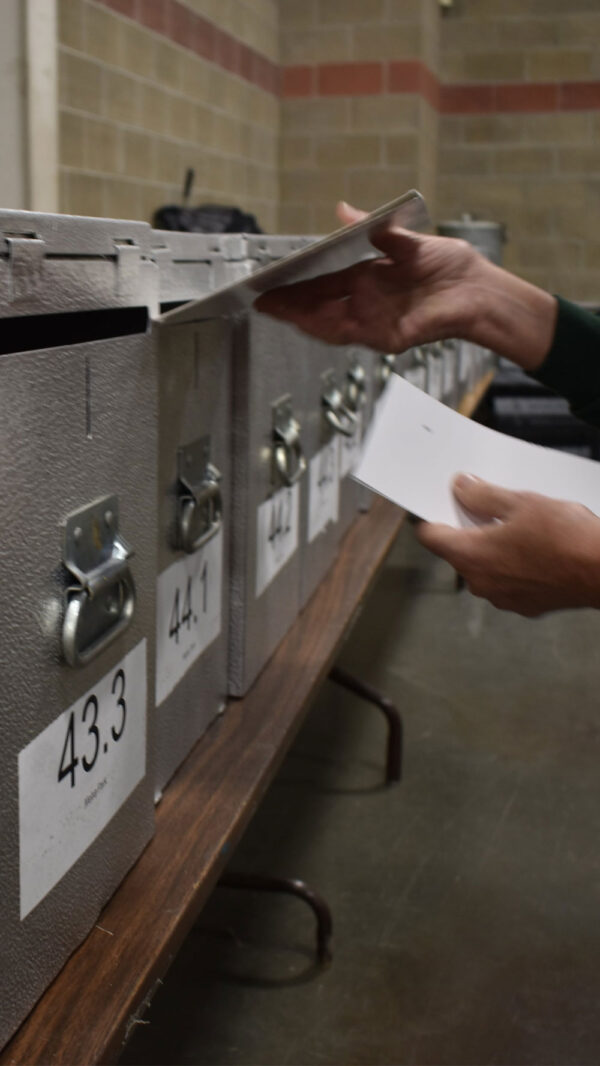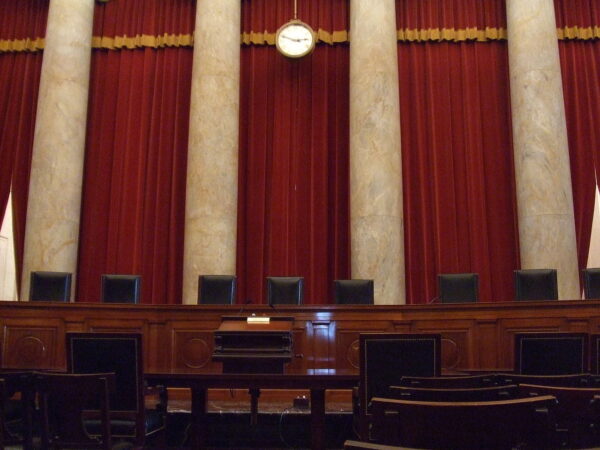
This Supreme Court Case Could Upend Democracy
October 20, 2022
The Supreme Court is set to hear a case this term that could upend the very foundation of our democracy: free and fair elections. In the case of Moore v. Harper, the Supreme Court will decide whether the North Carolina Supreme Court has the power to strike down the legislature’s gerrymandered congressional map for violating the state’s Constitution. The North Carolina legislators are arguing for an interpretation of the U.S. Constitution — known as the "independent state legislature theory” — that would render the state’s other branches of government and their checks and balances powerless in matters relating to federal elections, giving full power to partisan-majority state legislatures to determine how votes are cast and counted.
While this all may sound a little weedy, the stakes loom large. If the court sides with the North Carolina State legislature, Moore v. Harper, could change the face of our national elections and the rules that govern them. Joining us today to help break it all down are the 51Ć·˛č’s National Legal Director David Cole and Senior Staff Attorney for the 51Ć·˛č’s Voting Rights Project, Ari Savitzky, who also happened to write the 51Ć·˛č’s amicus brief for the case.
In this episode
Kendall Ciesemier

This Episode Covers the Following Issues
Related Content
-
Press ReleaseAug 2025

Voting Rights
Fifth Circuit Sides With Black Louisianians, Strikes Down Racially Discriminatory State Legislative Map. Explore Press Release.Fifth Circuit Sides with Black Louisianians, Strikes Down Racially Discriminatory State Legislative Map
NEW ORLEANS — In a victory for Black voters and democracy in Louisiana, the Fifth U.S. Circuit Court of Appeals today affirmed in full the district court’s ruling that the state’s legislative maps violate Section 2 of the Voting Rights Act of 1965. The court agreed that the maps dilute the voting power of Black Louisianians by unfairly dividing communities into state districts with the goal of reducing a group’s voting power, otherwise known as packing and cracking, denying them an equal opportunity to elect candidates of their choice. The ruling affirms the outcome of a seven-day trial in late 2023, where expert witnesses, data analysis, and firsthand accounts from Black voters across Louisiana exposed the discriminatory effect of the current maps and their impact in places like Shreveport, Baton Rouge, and Natchitoches. “This is a historic affirmation of the rights of Black voters in Louisiana,” said Megan Keenan, 51Ć·˛č Voting Rights Project staff attorney. “Today’s decision sends a powerful message: The Voting Rights Act is still a vital safeguard against racial discrimination in our democracy. The court recognized the reality that many Black voters in Louisiana have been denied full and fair representation. This ruling brings us one step closer to the inclusive political process our clients and communities across the state deserve.” “The United States Court of Appeals for the Fifth Circuit has affirmed what we’ve always known: Black voters in Louisiana deserve equal representation,” said Alanah Odoms, executive director of the 51Ć·˛č of Louisiana. “This is a vital step toward correcting generations of injustice, and we will not stop until every Black Louisianan has the full and fair representation guaranteed to all Americans.” “Today’s victory is a testament to the strength and resilience of Black communities across Louisiana who have fought for years to be fairly recognized, represented, and heard,” said Sara Rohani, assistant counsel at the Legal Defense Fund. “Fair representation is not optional in Louisiana. Today’s decision reaffirms that the State must pass fair and non-discriminatory maps to comply with the Voting Rights Act. We look forward to rectifying another example of Louisiana’s long history of racial voter suppression.” “This decision is a victory for voting rights for all Louisianians who have long awaited fair maps in the state,” said Alora Thomas-Lundborg, senior counsel at Harvard Election Clinic. “I am beyond elated for this powerful win of Nairne v. Landry that touches all of Louisiana,” said Dr. Dorothy Nairne, named plaintiff, “including rural areas like Assumption Parish, where transformation has been nonexistent for far too long. Our people are ready to roar through our votes using legislative maps that truly represent us all. This victory ignites our desire to be involved, to uplift ourselves, and to shape the future our ancestors dreamed of.” “We have organized and mobilized for years, motivated by the promise of fair maps and an equal voice in our political process,” said Michael McClanahan, president of the NAACP Louisiana State Conference. “Today, we celebrate another milestone in our fight for justice, and we won't stop now.” “Today's decision is great victory for fairness and accountability,” said plaintiff Pastor Steven Harris. “We have proven that united voices cannot be ignored, and together, we will keep pressing forward until justice prevails everywhere.” “This decision is a welcomed victory that encourages us to continue the fight against those in power who are determined to silence the voices of Black and Marginalized communities,” said Black Voters Matter Fund founders Cliff Albright, Latosha Brown, and April England-Albright. “This powerful ruling ensures that the votes of minority and rural voters in Louisiana are not diluted and showcases our belief that the citizens of this nation, not elected officials, determine who represents them. We move forward with the hope that this decision will influence SCOTUS’ review of another Section 2 Voting Rights Case from Louisiana this fall, by serving as a reminder that Section 2 of the VRA is a powerful and needed tool that guarantees the 14th amendment is alive, not in just words and theory, but also in practice.” “A unanimous win is incredible as the Court clearly held Louisiana must have maps where Black voters have a fair opportunity to elect candidates of choice,” said plaintiff Dr. Alice Washington. “We are advancing our state to a more perfect place and hopefully will inspire all to want to live here.” The plaintiffs in the case include Dr. Dorothy Nairne, Rev. Clee Earnest Lowe, Dr. Alice Washington, Pastor Steven Harris, the Black Voters Matter Capacity Building Institute, and the Louisiana State Conference of the NAACP. They are represented by the 51Ć·˛č, 51Ć·˛č of Louisiana, Legal Defense Fund, Harvard Law School Election Law Clinic, Cozen O’Connor, and Louisiana attorneys Ron Wilson and John Adcock. A link to the court’s ruling can be found here: https://assets.aclu.org/live/uploads/2025/08/Nairne-Appeal-Win-8.14.25.pdfCourt Case: Nairne v. LandryAffiliate: Louisiana -
News & CommentaryAug 2025

Voting Rights
The Voting Rights Act At 60: A Legacy In Jeopardy, A Democracy At Risk. Explore News & Commentary.The Voting Rights Act at 60: A Legacy in Jeopardy, a Democracy at Risk
As the Voting Rights Act turns 60, its legacy is under siege—from courts, lawmakers, and a government retreating from enforcement. The battle to preserve it is now a fight for the future of democracy itself.By: Sophia Lin Lakin -
MontanaJun 2025

Voting Rights
Montana Federation Of Public Employees V. State Of Montana. Explore Case.Montana Federation of Public Employees v. State of Montana
Representing Western Native Voice and four sovereign tribal nations in Montana, the 51Ć·˛č, 51Ć·˛č of Montana, and Native American Rights Fund (NARF) challenged the latest in a line of Montana laws that hinder Native American participation in the state’s electoral process — SB 490, which drastically limits access to Election Day voter registration (EDR) in Montana. These laws violate a number of provisions in the Montana Constitution: the right to vote, equal protection, and due process.Status: Ongoing -
U.S. Supreme CourtJul 2025

Voting Rights
Bost V. Illinois State Board Of Elections. Explore Case.Bost v. Illinois State Board of Elections
Congressman Michael Bost brought suit trying to prevent Illinois from counting mail ballots that are voted by election day and received within the following fourteen days, consistent with Illinois law. The Seventh Circuit ruled that Congressman Bost lacks standing to sue. Bost sought certiorari from the U.S. Supreme Court on the question whether he has standing as a federal candidate to bring his lawsuit and have it decided on the merits. While the 51Ć·˛č strongly opposes Congressman Bost’s position on the merits and has repeatedly defended similar state laws from challenge, the rules that determine whether Bost has standing to even bring his anti-voter lawsuit also apply to civil rights groups when they bring suit to expand or protect the rights of voters.Status: Ongoing

